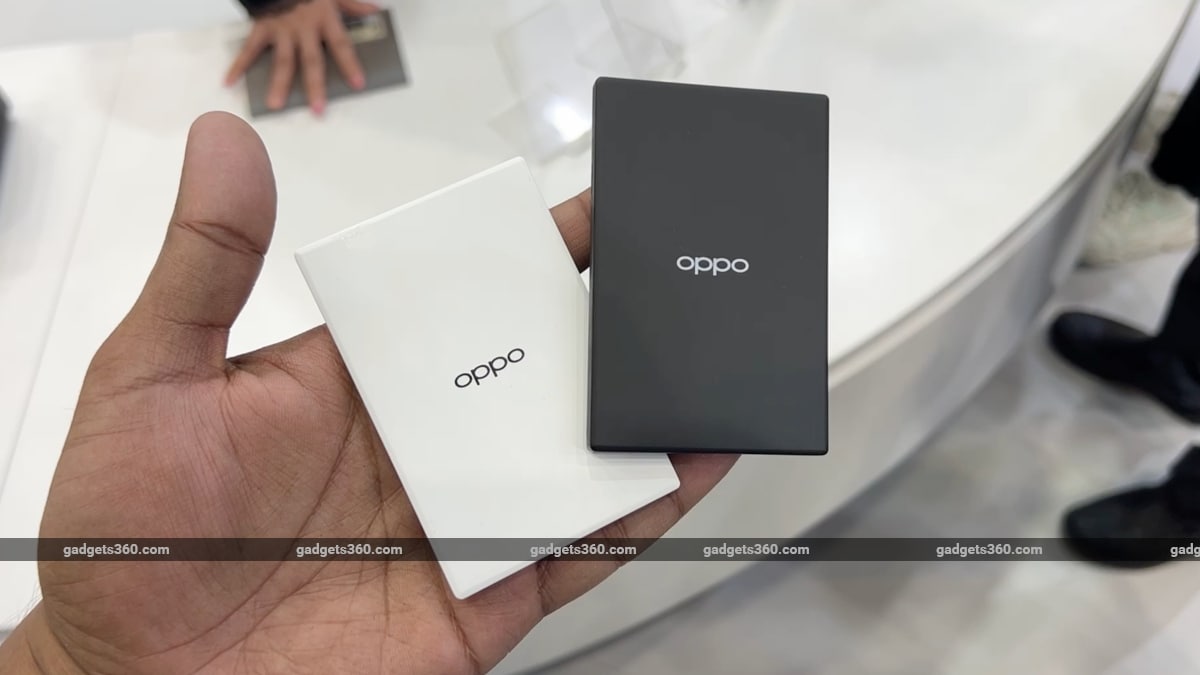[ad_1]
Among the many Oppo products and prototype devices showcased at the Mobile World Congress (MWC) 2023, the company also showcased its first Zero-Power Tag. The prototype object tracker is the first device from the company to be unveiled after it revealed plans to develop IoT products that do not rely on battery power, in a whitepaper released early last year. The device, which looks like a visitor’s ID card, functions in a manner that is very similar to Apple’s AirTag or a Tile tracker, but does not require a battery to power itself.
Oppo explained that its first prototype device leverages several technologies. This includes RF signal harvesting, backscattering and low-power computing. It powers itself by harvesting ambient radiofrequency energy from the environment to generate power. This RF energy emanates from various sources, including TV towers, FM radio towers and more commonly cellular base stations. The same can even be powered by Wi-Fi access points.
Once powered up, the device is then smart enough to modulate ambient radio signals with its own information, transmitting signals outwards, in a process known as backscattering. Beyond this, it’s up to existing networks to pick them up and connect the dots, which in this case involves revealing its location. Oppo’s working prototype is not only capable of item identification and positioning, but can also collect data from temperature sensors.
While Oppo is currently targeting the “diverse needs of IoT in the coming 6G era”, its earlier whitepaper had some ambitious plans for its Zero-power communication technology. Since the technology avoids the use of batteries like on an Apple AirTag, these can be a lot smaller than the card-like device showcased at MWC 2023. This makes them quite compact and also low-cost. Oppo explained that this allows it to use Zero-power Communication technology to be used in a variety of commercial applications like warehousing, logistics and agriculture apart from the more common use cases like wearables, smart homes and more.
Since the technology has a smaller environmental impact, there’s room for broader applications like tracking migratory birds, animals and more by using more effective long-distance tracking devices. Oppo claims that its technology is far superior when compared to passive communication technology like radio frequency identification (RFID) technology, which is currently used in a wide variety of applications but is limited to short communication distances and low efficiency when it comes to powering them.
It is likely that Oppo’s Zero-Power Tag will see its form factor change before the company launches a consumer product powered by the underlying technology for the masses. But an object tracker with this technology isn’t expected to happen anytime soon.
[ad_2]
Source link









